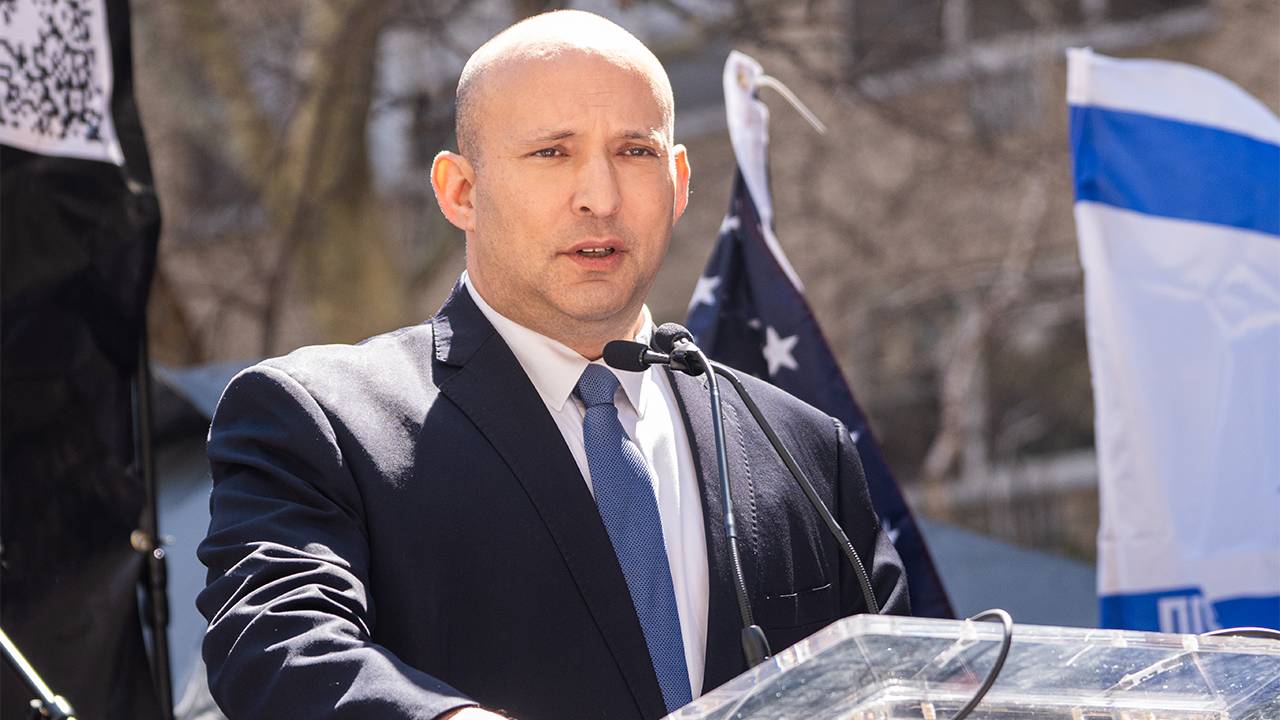World
US to require automatic emergency braking on new vehicles in 5 years and set performance standards
DETROIT (AP) — In the not-too-distant future, automatic emergency braking will have to come standard on all new passenger vehicles in the United States, a requirement that the government says will save hundreds of lives and prevent thousands of injuries every year.
The National Highway Traffic Safety Administration unveiled the final version of the new regulation on Monday and called it the most significant safety rule in the past two decades. It’s designed to prevent many rear-end and pedestrian collisions and reduce the roughly 40,000 traffic deaths that happen each year.
“We’re living through a crisis in roadway deaths,” Transportation Secretary Pete Buttigieg said in an interview. “So we need to do something about it.”
It’s the U.S. government’s first attempt to regulate automated driving functions and is likely to help curb some of the problems that have surfaced with driver-assist and fully automated driving systems.
Although about 90% of new vehicles have the automatic braking standard now under a voluntary agreement with automakers, at present there are no performance requirements, so some systems are may not be that effective. The new regulations set standards for vehicles to automatically stop and avoid hitting other vehicles or pedestrians, even at night.
“Part of how I think we’re going to turn the corner on the unacceptable level of roadway deaths that we just lived with for my entire lifetime is through these kinds of technologies,” said Buttigieg, who is 42. “We need to make sure we set high performance standards.”
The regulation, which will require additional engineering to bolster software and possibly add hardware such as radar, won’t go into effect for more than five years. That will give automakers time to bolster their systems during the normal model update cycle, NHTSA said.
It also will drive up prices, which NHTSA estimates at $354 million per year in 2020 dollars, or $82 per vehicle. But Buttigieg said it will save 362 lives per year, prevent about 24,000 injuries and save billions in property damage.
Critics say the standards should have come sooner, and that they don’t appear to require that the systems spot people on bicycles, scooters or other vulnerable people.
The new rule requires all passenger vehicles weighing 10,000 pounds (4,500 kilograms) or less to have forward collision warning, automatic emergency braking and pedestrian detection braking.
The standards require vehicles to stop and avoid hitting a vehicle in front of them at speeds up to 62 miles per hour (100 kilometers per hour). Also they must apply the brakes automatically at up to 90 mph (145 kph) if a collision with vehicle ahead is imminent.
The systems also have to spot pedestrians during the day and night, and must stop and avoid a pedestrian at 31 mph to 40 mph (50 kph to 64 kph) depending on the pedestrian’s location and movement.
The agency said that in 2019, nearly 2.2 million rear-end crashes were reported to police nationwide, killing 1,798 people and injuring 574,000 others. Sixty percent of fatal rear-end crashes and 73% of injury crashes were on roads with speed limits of 60 mph (97 kph) or below.
In addition, there were 6,272 pedestrians killed in crashes, with 65% of those people being hit by the front of a passenger vehicle.
The vast majority of deaths, injuries and property damage happens at speeds above 25 mph (40 kph), speeds that are not covered by the voluntary agreement, the agency said.
“Only regulation can ensure that all vehicles are equipped with AEB (automatic emergency braking) that meet minimum performance requirements,” the regulation says.
NHTSA would conduct random tests to determine whether automakers are meeting the standards.
The agency said it isn’t requiring what type of sensors each automaker must have to meet the requirements. That’s up to the automakers. But in testing of 17 vehicles, only one — a 2023 Toyota Corolla equipped with cameras and radar — met the standards.
The regulation said radar would have to be added to about 5% of the systems in order to comply with the requirements.
Cathy Chase, president of Advocates for Highway and Auto Safety, said the new standards will make it clear to car buyers that AEB will work properly. Most consumers, she said, are unaware that there are no requirements in place now.
“By and large, it’s better to have AEB than not have AEB,” she said. “So once the AEB rule is put into place, once again the federal government will be doing its job and protecting consumers.”
NHTSA said it changed its original proposal, giving automakers more than five years to meet the standards instead of three. Chase said shorter would be better.
“The shorter the timeline, the more people are going to be saved, the quicker these are going to get into cars and our roadways are going to be safer for everyone,” she said.
Chase said she is not pleased that the rule does not appear to include standards for bicyclists or people using scooters.

World
Protesters block New Caledonia roads as French police pour in

World
Ex-Israeli PM calls for defunding ICC after court requests arrest warrant for Netanyahu over ‘war crimes’

Former Israeli Prime Minister Naftali Bennett on Monday called for “decent nations” to defund the International Criminal Court (ICC) after a court prosecutor filed applications for arrest warrants against Israeli Prime Minister Benjamin Netanyahu, Defense Minister Yoav Gallant and Hamas leaders for alleged “war crimes.”
Prosecutor Karim Khan said his office had collected evidence to give “reasonable grounds” to believe Netanyahu and Gallant “bear criminal responsibility for… war crimes and crimes against humanity committed on the territory of the State of Palestine.”
Khan said those alleged crimes include “starvation of civilians as a method of warfare” and “intentionally directing attacks against a civilian population.”
He said he is also seeking arrest warrants for Hamas leader Yahya Sinwar, its top political leader Ismail Haniyeh, and its military commander Mohammed Deif.
AMAL CLOONEY PLAYED KEY ROLE IN ICC ARREST WARRANTS FOR NETANYAHU, HAMAS LEADERS
Former Prime Minister of Israel Naftali Bennett speaks at the “Bring Them Home” rally in support of Israeli hostages outside the UN Headquarters on April 07, 2024 in New York City. (Noam Galai/Getty Images)
Bennet said the prosecutor’s request was “a moment of shame for the ICC and the world community” and provided “a huge boost to global Jihadi terror.”
“An ICC that compares the executor of a deliberate murderous attack that included raping women and burning babies, with those who are defending themselves against it, is better off not existing,” Bennett said. “It’s time for the decent nations to defund the ICC.”
He included the hashtag: “DefundTheICC.”
Netanyahu and other Israeli leaders condemned the move as disgraceful and antisemitic. U.S. President Joe Biden also lambasted the prosecutor and supported Israel’s right to defend itself against Hamas.
A panel of three judges will decide whether to issue the arrest warrants and allow a case to proceed. The judges typically take two months to make such decisions.
Israel is not a member of the court, so even if the arrest warrants are issued, Netanyahu and Gallant do not face any immediate risk of prosecution. But the threat of arrest could make it difficult for the Israeli leaders to travel abroad.
Fox News Digital’s Greg Norman and The Associated Press contributed to this report.
World
‘Lone wolf’ or JI?: Jemaah Islamiyah confusion after Malaysia attack

Medan, Indonesia – Malaysia has been the target of a rare deadly attack after a man armed with a machete struck a police station in southern Johor state, killing two police officers and injuring a third.
Initially, Malaysian police said they suspected Friday’s incident was linked to the hardline group Jemaah Islamiyah (JI) and was probably an attempt to steal weapons. Speaking to the media after the attack in the town of Ulu Tiram, Inspector General of Police Razarudin Husain said police raided the suspect’s house and discovered “JI-related paraphernalia”.
Five members of his family were arrested, including the suspect’s 62-year-old father, who police said was a “known JI member”. Two other people, who were in the police station making a report at the time of the attack in the early hours of Friday morning, were also detained.
But on Saturday, Malaysia’s Minister of Home Affairs Saifuddin Nasution Ismail appeared to backtrack on the JI connection, describing the attacker as a “lone wolf” who was “driven by certain motivations based on his own understanding because he rarely mixed with others”.
Former members of JI in Indonesia told Al Jazeera that an attack by the group on Malaysian soil seemed unlikely.
Speaking from prison in Indonesia’s capital Jakarta, where he is serving a life sentence for his role in JI’s 2002 Bali bombing, which killed more than 200 people, Ali Imron told Al Jazeera that JI’s profile in Malaysia did not seem to fit the police station attack.
“There have never been any JI members in Malaysia who agreed to commit acts of violence like this,” he said. “Before the Bali bombing, there were attacks in Malaysia, but these were committed not by JI but Kumpulan Mujahidin Malaysia [KMM].”
KMM, a hardline group linked to JI, carried out small-scale attacks in Malaysia in the early 2000s.
Rueben Dass, a senior analyst at the S Rajaratnam School of International Studies in Singapore, noted that JI had never previously mounted attacks in Malaysia.
“Malaysia was always considered an economic region for JI, not the focus of attacks,” he told Al Jazeera. “The Malaysian authorities were always vigilant and aware, particularly after KMM became active. They have been on their toes and carried out a wave of arrests in the early 2000s of JI members.”
Since then, he said, JI had maintained a low profile.
“To see them coming up again is a little surprising,” he added.
Indonesia, which saw a spate of JI attacks in the late 1990s and early 2000s – including attacks on churches on Christmas Eve 2000, the Bali bombings and the 2003 attack on Jakarta’s JW Marriott Hotel – has also been largely successful in clamping down.
In 2003, with funding and training from the United States and Australia, it established the Counterterrorism Special Detachment 88 (Densus 88), and later set up a National Counterterrorism Agency (BNPT).
Indonesian authorities have also pioneered a range of deradicalisation programmes, using former members of hardline groups including JI, with recidivism rates at about 11 percent, according to the Institute for Policy Analysis of Conflict, a Jakarta-based think tank.
History of JI
JI was founded by Indonesian Muslim scholar Abu Bakar Bashir and Abdullah Sungkar in 1993, with a mission to establish an Islamic caliphate across Southeast Asia.
The group has historically been linked to al-Qaeda, from which it reportedly received funding and training in the 1990s and early 2000s. It has had members in Indonesia, Malaysia, Singapore, Cambodia and the Philippines.
JI was officially banned in Indonesia in 2007, leading to the group splintering. Some members focused on dakwah or proselytisation, while others continued to plot violent attacks. Arrests have continued across the region with members accused of stockpiling weapons and bomb-making equipment.
According to open source data, between 2021 and 2023, out of 610 people arrested In Indonesia, 42 percent were JI and 39 percent were from other hardline groups – including Jamaah Ansharut Daulah (JAD) and other pro-Islamic State groups.
The majority of JI senior figures have been either executed, shot dead in police raids or jailed.
Both Bashir and Sungkar lived in Malaysia in the 1980s and 1990s, in addition to senior members such as Indonesian Encep Nurjaman (alias Hambali) and Malaysians Noordin Mohammed Top and Azahari Husin. Ali Ghufron (alias Mukhlas), Amrozi bin Nurhasyim and Imam Samudra, the masterminds of the Bali bombing, also spent time in Malaysia.
Hambali was arrested in Thailand in 2003 and is currently awaiting trial at Guantanamo Bay in Cuba, while Samudra, Amrozi and Mukhlas were executed in 2008. The two Malaysians were shot in separate police raids in Indonesia in 2005 and 2009.
Before his death, Noordin ran the Luqmanul Hakiem Islamic boarding school in Malaysia, which was founded by Bashir and Sungkar and was in Ulu Tiram, close to the home of the suspect of Friday’s attack.
Malaysia closed the school in 2002 amid suspicions it was being used to recruit people to JI.
Style of attack
While the profile of the suspect’s father, and the proximity to Luqmanul Hakiem, might have suggested a JI connection, Imron cautioned against such an analysis.
“If the son followed his father, there is no way he would have committed this act, so there is a strong possibility that he was inspired by ISIS [ISIL],” Imron said, suggesting the Malaysian authorities had “jumped to that conclusion.”
Umar Patek, who was released from prison in 2022 after serving 11 years of a 20-year sentence for mixing some of the chemicals used in the Bali Bombing, told Al Jazeera that he “did not believe” that the attacker was a member of JI and agreed that the attack appeared to have the hallmarks of another group.
“I am very doubtful,” he said. “I don’t understand it, especially carrying out a violent attack. It is impossible in my view that it was JI, but it is possible that it was ISIS.”
The style of the attack has added to the scepticism, as the targeting of a police station and Muslim police officers is inconsistent with JI’s attacks in Indonesia. There, it has been ISIL-inspired hardline groups, including JAD, that have attacked police stations, seeing them as representative of the state.

Judith Jacob, the head of Asia for the risk analysis and intelligence company Torchlight, told Al Jazeera that the most unusual aspect of Friday’s attack was the location.
“While Malaysian militants have been key figures in JI and Philippine-based groups, there are few indications of sophisticated plots targeting Malaysia specifically in recent years,” she said.
However, while Malaysia and Indonesia have not seen anything like the levels of violence of the early 2000s, attacks have not been completely eradicated – with a pattern of more opportunistic and low-level violence emerging.
“The attack in Malaysia remains squarely within the wheelhouse of regional Islamist militant groups – that is to say, it is a relatively unsophisticated assault,” Jacob said.
“Indonesian groups, in particular, have been largely unable to conduct the large-scale attacks or coordinated bombings that were a hallmark of JI in its heyday in the 2000s. Militant groups in the Philippines are more capable, but they too have been unable to conduct sophisticated bombings beyond the southern islands.”
-

 News1 week ago
News1 week agoSkeletal remains found almost 40 years ago identified as woman who disappeared in 1968
-

 Movie Reviews1 week ago
Movie Reviews1 week ago“Kingdom of the Planet of the Apes”: Disney's New Kingdom is Far From Magical (Movie Review)
-

 World1 week ago
World1 week agoIndia Lok Sabha election 2024 Phase 4: Who votes and what’s at stake?
-

 World1 week ago
World1 week agoUkraine’s military chief admits ‘difficult situation’ in Kharkiv region
-

 World1 week ago
World1 week agoBorrell: Spain, Ireland and others could recognise Palestine on 21 May
-

 Politics1 week ago
Politics1 week agoTales from the trail: The blue states Trump eyes to turn red in November
-

 World1 week ago
World1 week agoCatalans vote in crucial regional election for the separatist movement
-

 Politics1 week ago
Politics1 week agoNorth Dakota gov, former presidential candidate Doug Burgum front and center at Trump New Jersey rally

















